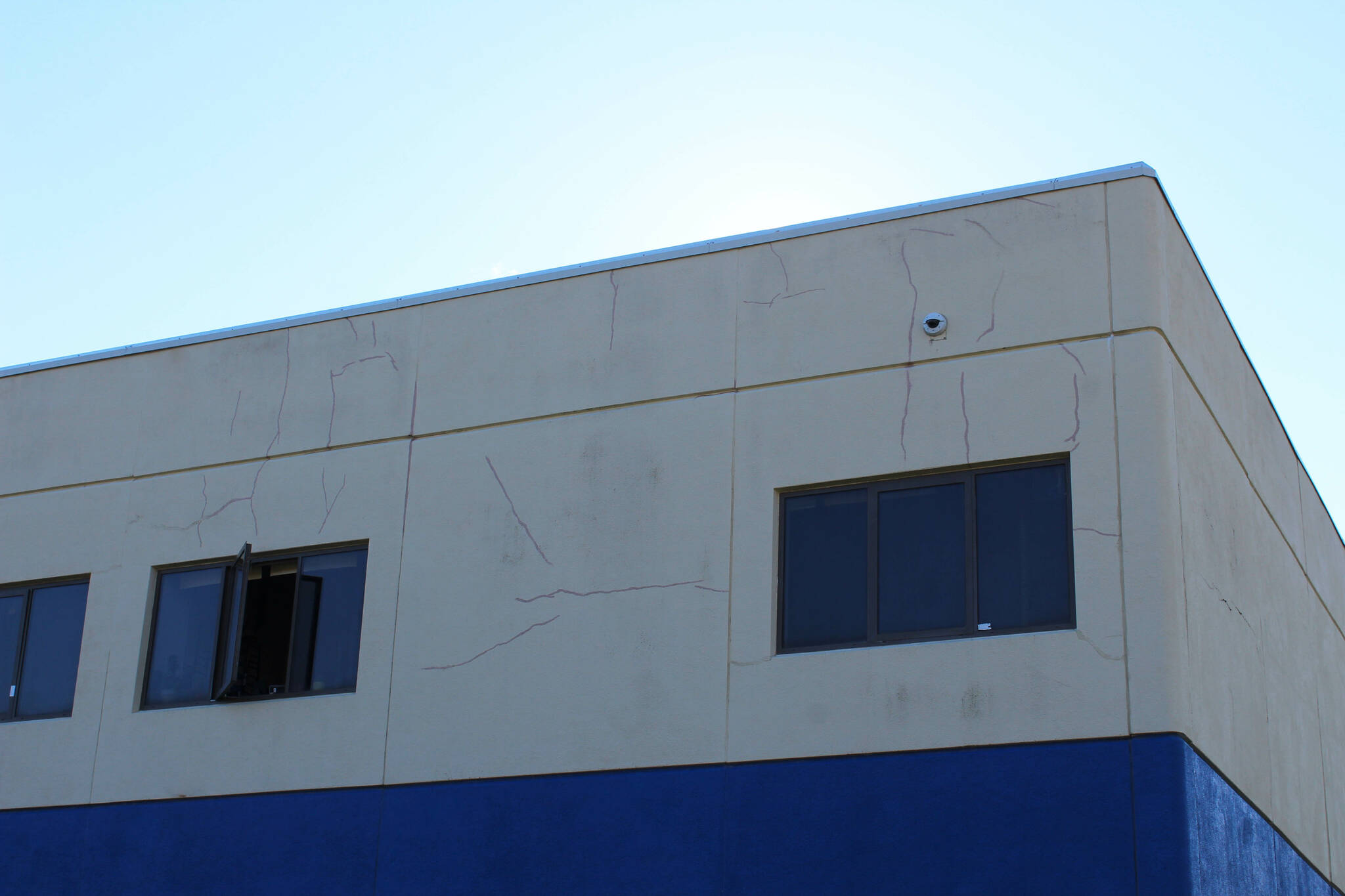A former special education teacher at Mountain View Elementary School is suing the Kenai Peninsula Borough School District and the Kenai Peninsula Borough with and on behalf of her four children, who she says have suffered from medical issues after being exposed to mold and other materials while attending district schools.
Jennifer Harvey-Kindred and two of her adult children, Madeline Kindred and Jillian Kindred, are plaintiffs in the suit, as are two of Harvey-Kindred’s minor children. Between 2004 and 2018, the four children attended at various intervals Aurora Borealis Charter School in Kenai, Soldotna Middle School, Soldotna High School and Kenai Central High School.
School district records published for the KPBSD school board’s Oct. 2, 2023, meeting show that Harvey-Kindred worked as a special education pre-kindergarten teacher at Mountain View Elementary School in Kenai until her resignation effective Oct. 17, 2023.
The suit says the schools have “a history of water intrusion, water damage, organic and microbial growth and mold” and that the school district and borough “have a history of underfunding building maintenance for K-12 schools.” In an answer to the civil complaint, the borough and school district denied those allegations.
The suit further says that the school district and borough have failed to keep up on annual maintenance requirements and have deferred maintenance on school roofs, ceilings and siding, “allowing water to leak in and allow organic and microbial growth to occur in the buildings for years.” The borough and school district deny those allegations as well in their answer to the complaint.
At each school, the suit says, Harvey-Kindred’s four children were exposed to “dangerous mold and organic growth.”
Because of that exposure, the suit alleges, each of the four former students have suffered one or more of: nose bleeds, allergies, periodontal disease, neurological issues, emotional distress, chronic sinusitis, fungal prediabetes, fatigue, anemia, chronic joint pain, pre-thyroid issues, back inflammation, herniated disc, hormonal issues affecting reproductive organs, gut issues, diabetes and difficulty concentrating.
Through the suit, the plaintiffs are seeking financial compensation for damages, which they estimate to be in excess of $100,000, and for attorney fees. The plaintiffs also demand a jury trial.
KPBSD Superintendent Clayton Holland told the Clarion in early December that the district has both acknowledged and responded to the complaint.
“The claims will continue to be thoroughly investigated, and the District will vigorously defend against the claims,” Holland said. “The health, safety, and welfare of all students, staff and visitors to all school facilities has always been and will continue to be a top priority for the District.”
Documents obtained by the Peninsula Clarion show that, across Aurora Borealis Charter School, Soldotna Middle School, Kenai Central High School and Soldotna High School, a total of three fungal growth studies were conducted between 2005 and 2021 — the years during which the plaintiffs attended those schools.
The first, conducted in 2007 at Soldotna Prep School — previously called Soldotna Middle School — detected “unusual” mold conditions. The sample was taken from the school principal’s office and detected two types of spores. The first type, the report says, is commonly found on dead plants, while the second is commonly found in soil, food, paint and compost piles.
The second study, conducted in 2012, tested carpet in Mountain View Elementary School. That report found that the fungal elements and spores were below the detection limit.
The third study was prepared for Soldotna High School in 2021. The 28-page report found signs of “chronic long-term water intrusion” on the school’s north wall and said that fungal growth was seen on the sheetrock above the window in one of the classrooms, but that the conditions represented a “normal fungal ecology.” The report further concluded that cleaning by school staff is “effective.”
The report recommended that the borough remove the contaminated sheetrock above the window and replace it with a product that would not promote mold growth. Additional monitoring of the windows on that side of the building was also recommended. Remediation efforts, the report said, should focus on removing mold growth and ensuring that any areas where water is getting into the building are addressed.
“Since mold spores are ever-present in the environment, it is virtually impossible to make a building mold-free,” the Soldotna High School summary report says. “Because molds are ubiquitous with the built environment, spores that settle on moist or wet surfaces with the right nutrients have the potential to grow.”


